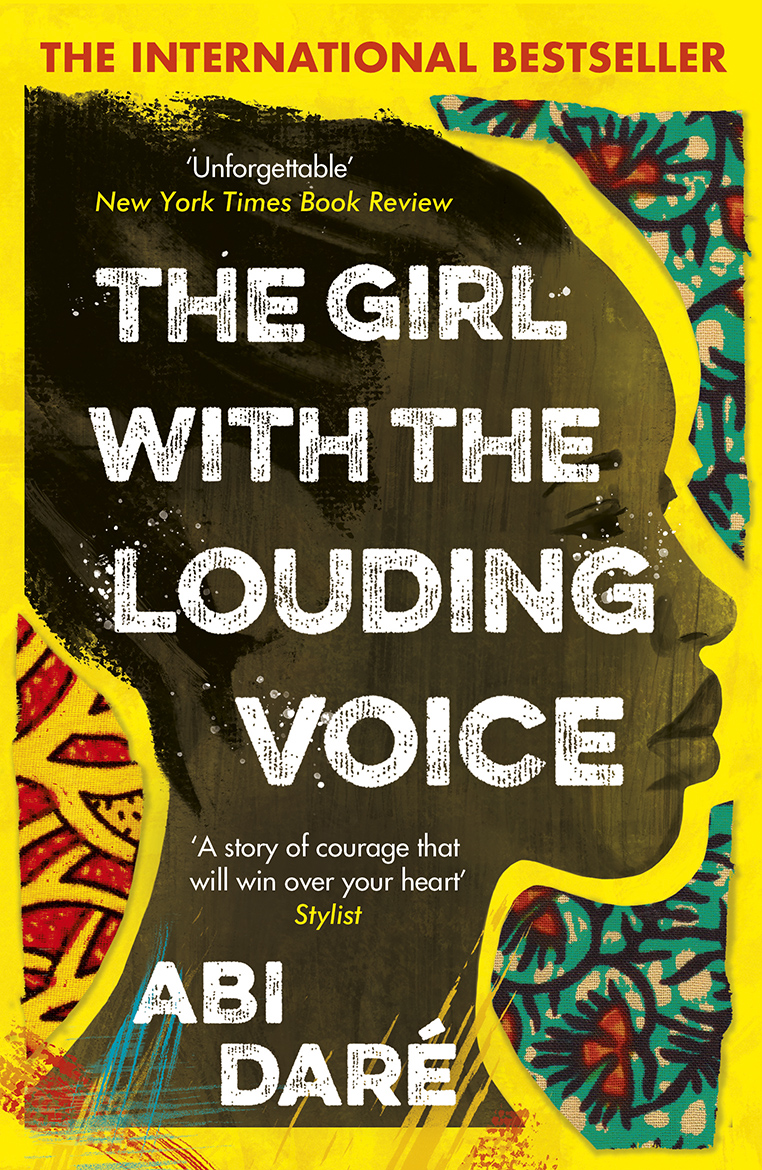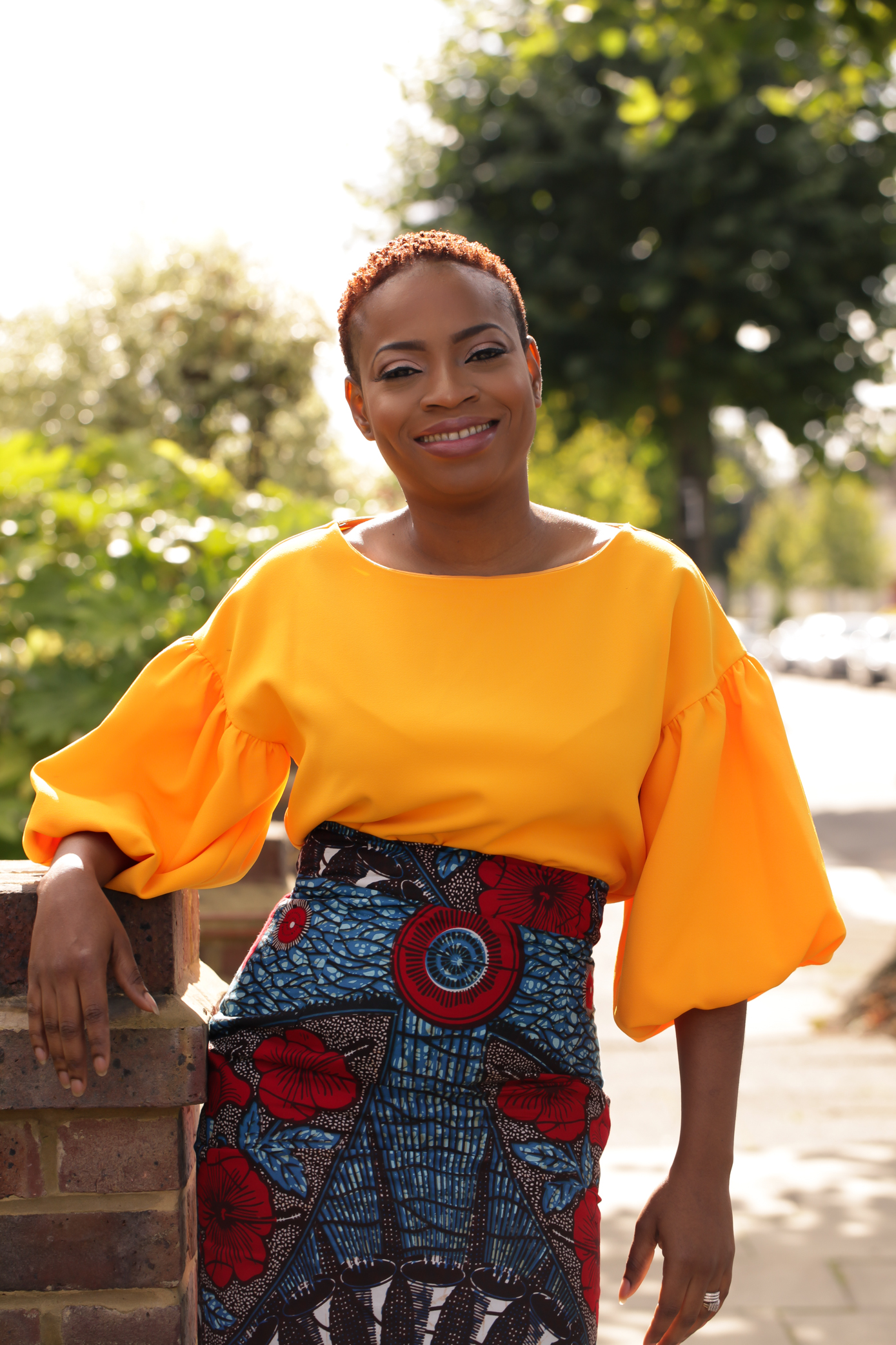In this month’s edition of A Way With Words – an ongoing series of interviews with contemporary female writers – CF speaks to Abi Daré.
Nigerian writer Abi Daré’s debut novel The Girl With the Louding Voice has been shortlisted for the Desmond Elliott Prize and was recently selected as Amazon’s best books of 2020 (so far). Written in broken English, the book tells the story of fourteen-year-old Adunni as she struggles to gain her independence, and most significantly, an education. Here, the author discusses discovering her character’s voice, the importance of speaking up, and her literary influences.
What was the starting point for The Girl With the Louding Voice?
A conversation with my daughter around the dishwasher led to a deep need to reflect on the hiring of young girls as housemaids, which was a common occurrence in my childhood.
Did the story change at all during the writing process?
A lot! I went through moments of despair as I had to delete 40k words from what was a truly horrendous ending, and needing to rewrite a new ending, but the goal and motivation of my character remained unchanged.
© AMP
Was Adunni’s voice there from the start?
I’d like to say that I planned her voice and that I had an idea of exactly how she would sound, and what she would say, but Adunni’s voice came to me in a moment following a period of slight desperation.
I was due to visit my supervisor for a consultation to discuss my MA dissertation submission, and while I had decided to write a book about a housemaid who lived in rural Nigeria, I had no clue of how to form my ideas and research into a story that was worth telling. I also needed to send him 3,000 words of my work in progress as a basis for any conversation. The evening before my deadline, in a state of utter panic, I sat down in front of my laptop and wondered what she would say, what she would sound like- and then, I heard it: her voice.
The first line of the book dropped into my spirit, and that was it. I grabbed it and never let go. The rest of the book built upon that foundation and evolved from an infusion of a number of sources: Nigerian slangs; words from my then two-year-old who was just discovering how to speak; literal translations from Yoruba into English. I also drew inspiration from the many housemaids that I and my friends and family encountered over the years, from listening to interviews and watching Nigerian movies, to reading excellent books that had been written in non-standard English.
Adunni needed to have a sense of humour and intelligence to balance out the heavy themes the book addresses, and I’d like to think that she demanded for it to be this way. I discovered a lot about her as I wrote. She felt like a living breathing character who was sitting in front of me as I wrote, arms crossed, deep frown on her face or sometimes laughter, demanding what would happen to her and how she would react. Sometimes, I felt her subtly chastising me for writing her reaction in a different way and I’d rewrite a scene until I felt that she was satisfied. I’d like to think that I simply followed her directions through. In many ways, she was and still is, a force unto herself.
What’s your definition of a ‘louding voice’?
In a society (Adunni’s village, in this instance) where poverty is rife, the girl child can be used as a commodity and her dreams are often silenced. For Adunni, a Louding Voice is the ability and opportunity to have an education; to have a legacy and to influence and change lives of girls like her for good; and to reject the silence that comes with being a girl child born into poverty. Adunni wants the freedom to make choices about the direction of her life and her dreams and she strongly believes that having an education is the first step, the foundation to making her dreams reality.
It is so critical to understand that speaking up transcends the ability to help just the person speaking up, but knowing that whenever we use our voices, we are doing so for many others who have suffered the same experiences or injustices. It is about starting crucial conversations that would hopefully lead to positive change. It is about refusing to be complacent, to accept what is seen as the norm. I love this quote by Martin Luther King Jr: “A man dies when he refuses to stand up for that which is right. A man dies when he refuses to stand up for justice. A man dies when he refuses to take a stand for that which is true.”
AMP
The book explores the commodification of women in Nigeria, and the power of education to break out of prescribed roles. Can you tell us a bit about your decision to focus on those themes?
In many parts of the world, women are marginalised. Nigeria is no exception. There is a common misplaced belief that the woman’s place is either in the kitchen or in the bedroom. As a deeply patriarchal society, where there has historically been a lack of provision of adequate education and skills acquisition programmes for the woman, starting from when she is a girl through to adulthood, I find that a woman struggles to become all that she wants. She ends up being wholly dependent on her husband or father or brothers and her choices and dreams are thus relegated. Educating the girl child has untold advantages, but once this opportunity is denied, or reduced, the woman and the world around her suffers and it was important for me to highlight this in the exploration of Adunni’s journey.
What was your own experience of growing up in Nigeria?
I was brought up in a middle class family and attended an all-girls independent school in Lagos before I headed to England for my university education. My mother travelled often ( within and outside of Nigeria) for work and I had many opportunities to visit other parts of the country and the world with her. I’d say my childhood was comfortable and filled with many happy memories.
How did you go about creating such a strong sense of place on the page?
For me, it is always about the five senses. I try to ensure that I interchange the use of each sense in the description of everything with the hope that the experience for the reader is as immersive as can be.
Why did you decide to incorporate a fictional history book The Big Book of Nigerian Facts into your narrative?
One of the criticisms of early drafts of the manuscript pointed out the obvious lack of something tangible for Adunni to hold onto. Something to motivate her to keep learning. The Book of Nigerian Facts was included to satisfy her curious nature. I had nearly completed the book so I had to investigate facts that would somehow correlate with the theme of the chapter. It was a lot of fun to investigate those facts as I learnt a lot more about Nigeria in the process.
Are there any novels or writers that have been particularly influential on your practice?
I love and respect the writings of Toni Morrison, Khaled Hosseini, Chigozie Obioma, Anthony Doerr, and so many others. I am always influenced by the book I am reading at that moment, as long as it engages me and is well written.
Is writing an enjoyable process for you?
An absolutely delightful, therapeutic, life-affirming process.
What are you currently working on?
Trying to wade through ideas for my next novel.
Quick-fire questions:
A book you think everyone should read?
A Thousand Splendid Suns by Khaled Hosseini.
Ideal writing set-up?
A lovely cafe, take-away cup of hazelnut latte in hand.
Where do you go for inspiration?
Other novels, a walk, a shower, some good night’s sleep, prayer.
Best piece of writing advice you’ve been given?
Your first draft is always crap, but you need to finish it to get the best out of it.
Favourite book of 2021 (so far)?
Nadia Owusu’s Aftershocks.
























Any Questions or Tips to add?